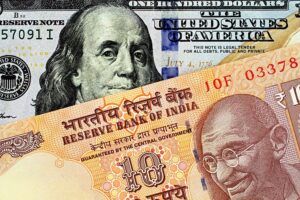- New research suggests that as you move up the income ladder, it takes exponentially more money to get the same happiness bump.
- It contradicts older research saying happiness peaks at a certain income.
- That might be influencing people to want to earn ever more money, the researcher said.
Yes, money buys happiness — and there’s no magic salary number that’ll unlock personal bliss. But the scramble to stay happier might be keeping inequality high.
That’s according to a new paper from Matthew Killingsworth, a senior fellow at Wharton People Analytics who’s extensively researched links between money and happiness. Killingsworth’s latest research — which randomly polled 33,391 American adults on how they were feeling along with other measures of their well-being — looks at how happiness increases with income.
Killingsworth’s work finds that the amount of money needed for happiness becomes an exponentially moving goalpost. The happiness boost of going from $10,000 to $20,000 is the same as going from $20,000 to $40,000, and from $40,000 to $80,000, and so on.
“If you think about society as an income ladder — where the top rung is the people earning the most, and the middle rung is the people earning the median amount, and the bottom rungs are the people earning the least — for each rung in the ladder you go up, you get just as much happiness because the gaps in dollars are even greater,” Killingsworth told BI.
While Killingsworth’s data doesn’t go into what millionaires and billionaires are experiencing — his survey results focus on people making up to around $500,000 a year — he said it’s suggestive of what might be happening with people earning much higher salaries. “It makes sense that the billionaire wants 5 billion if this pattern continues up to that level. We don’t know that for sure, but it’s plausible,” he said.
His findings contradict a commonly held belief: Once you make up to a certain income, you’ve more or less maxed out how much more happiness you can buy. That line of thinking suggests that if you hit a salary like $100,000, for example, the money you make in addition to that number won’t reflect a substantive boon in happiness, and there’s a hard ceiling on how happy you can get by making more money.
Killingsworth said his research could offer some clues to one of the major economic phenomena over the last few decades: Income inequality. You need more and more money to move up the happiness ladder — and as your hoard becomes bigger, so, too, does the amount you need to become happier.
“Even if you’re doing pretty well, you would keep wanting more,” Killingsworth said. “It’s not necessarily being greedy. It’s like getting exactly the same benefit you’ve always gotten and it just takes a little bit more money.”
But even if that’s an understandable individual impulse, it has repercussions for society as a whole. That extra $5 billion a billionaire might want to improve their happiness could go “so much further” to boost well-being for people earning less, Killingsworth said.
From a broader perspective, the findings reveal the tension that must be balanced in policy and company-level decisions. As Killingsworth said, “it makes perfect sense” for an individual to keep wanting more — and the exponential relationship suggests there’s no level where that stops. And Killingsworth said it will probably always make sense to pay the most productive people in the most productive role a higher wage — that’s how companies can hang on to their top workers, in many cases — but that might not impact the collective happiness level.
On a company level, those findings could have important ramifications for morale. Firms like to give out big bonuses to their highest earners — there’s no shortage of workers and policymakers lamenting the large bonuses given out to CEOs — but thinking about how they spend those dollars could have a big impact on happiness levels.
“If you’re Google and you’re giving bonuses to people, should you spend an extra dollar to give a bonus to the person earning $5 million or spend that dollar on someone who’s earning $50,000? Well, there might be reasons you need to give a bonus to the high earner, and maybe they’re earning it, that might be the right thing to do,” Killingsworth said. “But if you were just thinking about where is this dollar going to have the biggest impact on their life, it’s going to have orders of magnitude more impact on the person with the low salary.”
Have you found yourself chasing more money to feel happier? Contact this reporter at [email protected].
Read the full article here
















